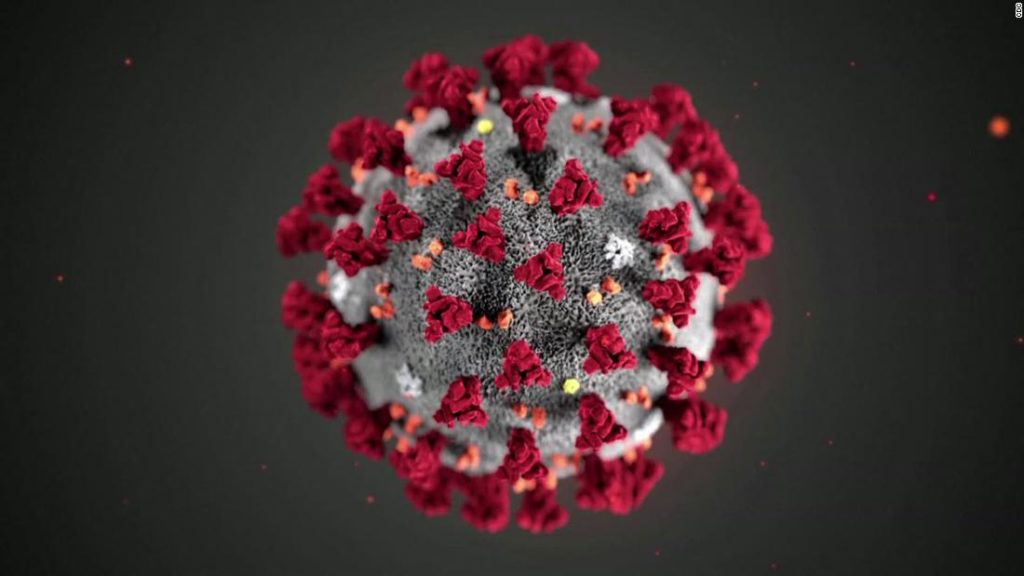It was the deadliest day of the pandemic, not just in the US but likely in any country in the world.
Hospitals across the country continued to fill up — the number of people of hospitalized with Covid-19 reached 132,476 yesterday, yet another record.
It’s likely many of the hospitalised will not survive. A new forecast from the US Centers for Disease Control and Prevention projects up to 76,700 more coronavirus deaths in the US by the end of January.
Just 5.3 million of the 17.3 million doses distributed have been administered in the US. That doesn’t come close to the target the Trump administration set in the fall.
State health officials have repeatedly complained they do not have the funds they need to vaccinate, test and contact trace, so the federal government said yesterday it would allocate further $22 billion to fight the pandemic.
US Surgeon General Dr. Jerome Adams said Wednesday that vaccine administration is “quickly ramping up” and he urged states to move to the next priority groups so supply “can match up with demand.”
“We should have done better, but I think we should wait until we get into maybe the second, or the third week in January, to see if we can now catch up with the original pace that was set,” he said.
YOU ASKED. WE ANSWERED
Q: How common are allergic reactions to Covid-19 vaccines?
With 1.9 million doses administered, this adds up to a rate of 11.1 cases of anaphylaxis out of 1 million doses administered, the CDC said. By comparison, the rate of severe allergic reaction for the flu vaccine is 1.3 per 1 million doses. “The anaphylaxis rate for Covid-19 vaccines may seem high compared to flu vaccines. But I want to reassure you that this is still a rare outcome,” Dr. Nancy Messonnier, director of the CDC’s National Center for Immunization and Respiratory Diseases, told a news conference.
WHAT’S IMPORTANT TODAY
The world is playing “a very dangerous game,” WHO says
“We’re playing a very dangerous game with this virus right now,” Maria Van Kerkhove, the WHO’s technical lead for the coronavirus response, told CNN. “What worries us is that the longer this spreads, the more opportunities it has to change.” The virus has more chances to mutate in countries like the United States, which is seeing unprecedented and uncontrolled spread.
Here’s how mutations could help the coronavirus evade vaccines
New variants of the coronavirus that have emerged in the UK and in South Africa seem to make the virus more easily transmitted. The evidence suggests the British variant has not changed enough to evade the protection offered by vaccines.
All the current vaccines target the spike protein. Mutations that change the way that spike protein looks can also help it hide from both arms of the immune system — the antibodies that attach to a virus and stop it from latching onto cells, as well as the T cells that attack the virus.
But the complex human immune system response might still allow the body to block the virus from a variety of other directions, and there is evidence this is the case.
Loss of smell in mild Covid-19 cases occurs 86% of the time
The sense of smell reappeared after an average of 18 to 21 days, the study found, but about 5% of people had not recovered olfactory function at six months.
ON OUR RADAR
- Japan has declared a state of emergency for the country’s capital Tokyo and three neighboring prefectures over rising coronavirus cases.
- These civil rights icons received a Covid-19 vaccine, and they’re encouraging Black America to do the same.
- The European Union authorized Moderna’s Covid-19 vaccine, paving the way for its rollout next week.
- The Oxford/AstraZeneca vaccine has been rolled out to doctors in England.
- The Miami-Dade County Medical Examiner is investigating the death of a doctor weeks after he received a Covid-19 vaccine.
- Students and staff at the University of California, San Diego, can now get Covid-19 tests by picking them up — from vending machines.
TOP TIP
There is no denying that 2020 has hampered activity levels. Between the Zoom meetings, Netflix binges and virtual cocktail hours, increased sitting is a pandemic-driven reality for many.
TODAY’S PODCAST
“Given that it’s been detected in multiple states and people with no history of international travel, I would guess that it’s very prevalent in some communities around the US.” — Angela Rasmussen, a virologist
You may also like
-
UK coronavirus variant has been reported in 86 countries, WHO says
-
NASA technology can help save whale sharks says Australian marine biologist and ECOCEAN founder, Brad Norman
-
California Twentynine Palms: Explosives are missing from the nation’s largest Marine Corps base and an investigation is underway
-
Trump unhappy with his impeachment attorney’s performance, sources say
-
Lunar New Year 2021: Ushering in the Year of the Ox

